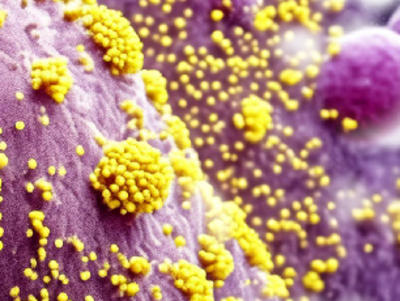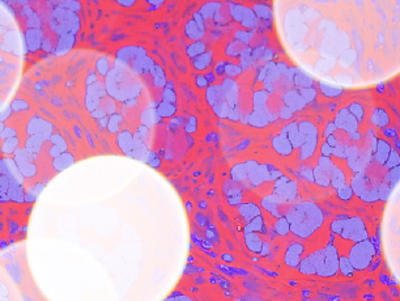DCEG Organization
DCEG is organized into branches and laboratories under the Trans-Divisional Research Program (TDRP). DCEG scientists work closely with the Leidos Cancer Genomics Research (CGR) Laboratory and is supported by the Administrative Resources Center.
Dr. Chanock's research is housed in the Laboratory of Genetic Susceptibility.
-

Biostatistics Branch
Investigators in the Biostatistics Branch develop quantitative methods and tools for cancer research. Meet the branch PIs and fellows, see recent publications, and learn about the branch's priorities.
-

Clinical Genetics Branch
Investigators in the Clinical Genetics Branch study individuals and populations at high genetic risk of cancer in order to improve our understanding of cancer etiology and to advance clinical care.
-

Infections and Immunoepidemiology Branch
Investigators in the Infections and Immunoepidemiology Branch study infectious agents with established or postulated associations with cancer and immune variation relevant for cancer risk.
-

Integrative Tumor Epidemiology Branch
Investigators in ITEB investigate cancer etiology and progression through large-scale, integrative analyses of risk factors and tissue profiling to inform prevention and clinical strategies.
-

Laboratory of Translational Genomics
Investigators in the Laboratory of Translational Genomics study germline and somatic genetics of cancer and conduct analyses on regions of the genome conclusively identified through genome-wide association and family-based studies.
-

Metabolic Epidemiology Branch
Investigators in the Metabolic Epidemiology Branch conduct interdisciplinary research to understand the role of metabolic and lifestyle factors in causing and preventing cancer.
-

Occupational and Environmental Epidemiology Branch
Investigators in the Occupational and Environmental Epidemiology Branch conduct studies in the United States and abroad to identify and evaluate environmental and workplace exposures that may be associated with cancer risk.
-

Radiation Epidemiology Branch
Investigators in the Radiation Epidemiology Branch conduct epidemiological, genetic, and radiation dosimetry research to quantify risk, identify susceptible populations, and carry out advanced exposure assessments.
Offices, Units, and Groups
-
 Office of Education (OE)
Office of Education (OE)The Office of Education oversees the DCEG fellowship program and career development for all staff.
-
 Data Science & Engineering Research Group
Data Science & Engineering Research GroupData Science & Engineering Research Group seeks to advance research and infrastructure for data-intensive precision prevention studies